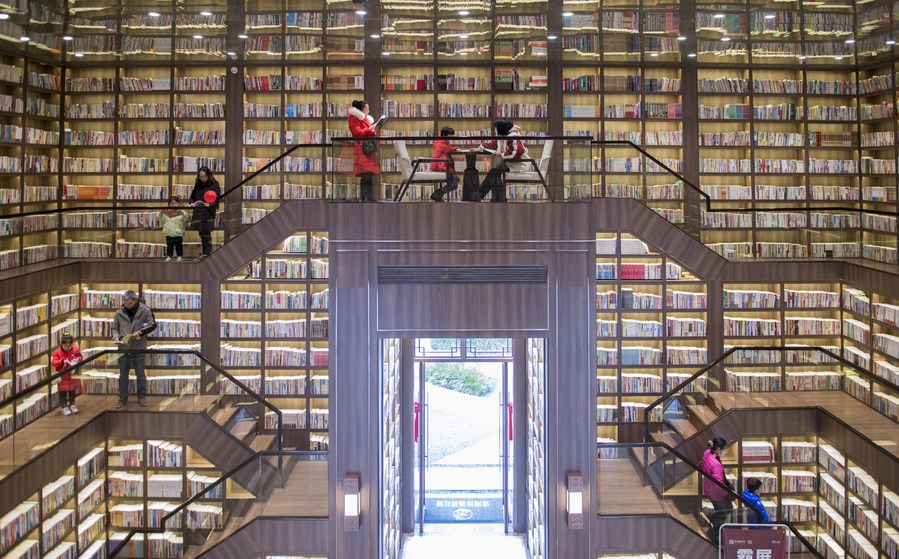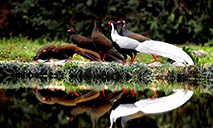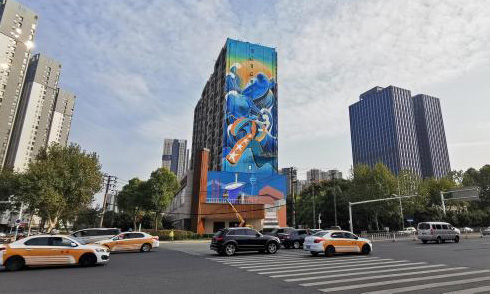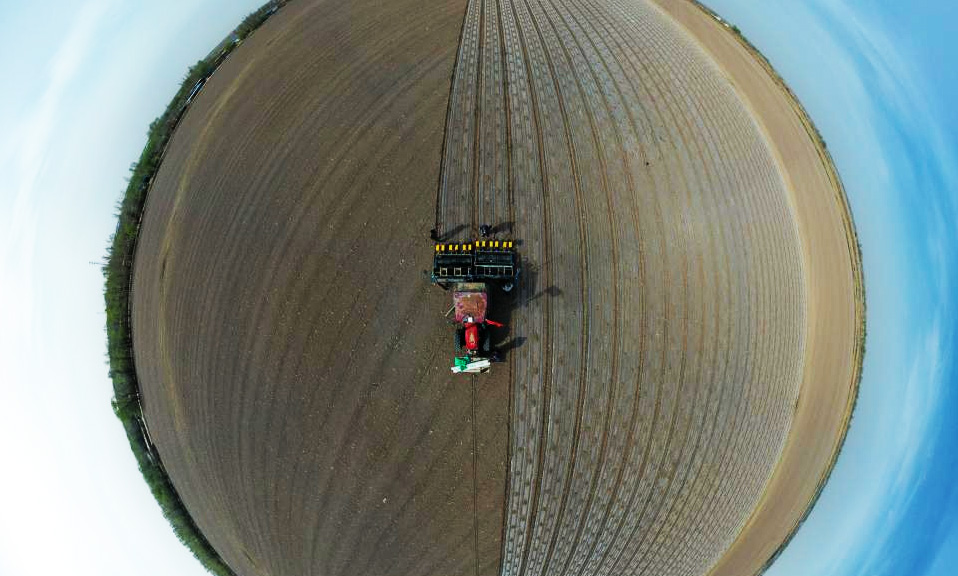Xi Story: A look at Xi Jinping's reading list

People read books during the New Year holiday at a library in Jiangyong County of Yongzhou City, central China's Hunan Province, Jan. 2, 2022. (Photo by Jiang Keqing/Xinhua)
BEIJING, April 23 (Xinhua) -- When 15-year-old Xi Jinping arrived in Liangjiahe in northwest China's Shaanxi Province in 1969 as an "educated youth," he was hauling a heavy suitcase full of books.
For the next seven years he lived and worked in the village, the books stayed with him. Some for even longer.
Xi's love for books continues, with his "reading list" going on and on.
From "The Communist Manifesto," "Das Kapital," to "The Analects of Confucius," "A General History of China," and "War and Peace," the content of his bookshelves is always a talking point. The broadcast of his annual New Year speeches as the Chinese president since 2013 offered people a rare chance to see the bookshelves in his office.
Xi often referred to the classics in speeches or in conversations both at home and abroad, which may offer a glimpse of how the books have influenced him.
At the Sochi Winter Olympics, when meeting with Chinese athletes, Xi quoted the "backbone of China," taken from writings by renowned writer Lu Xun (1881-1936), to describe the athletes' perseverance.
While talking about "The Communist Manifesto," Xi called it a rich theoretical treasure-house that "we can constantly draw spiritual nourishment from through our repeated and in-depth study."
Captivated by Ernest Hemingway's "The Old Man and the Sea," Xi went to the breakwater in Cojimar where Hemingway wrote the book and the bar Hemingway frequented during his visits to Cuba. "I just wanted to feel for myself what was on his mind and what the place was like as he wrote those stories," he said.
While speaking on China-India relations in India, Xi said he had read Rabindranath Tagore's works including "Gitanjali," "Stray Birds," "The Gardener," and "The Crescent Moon." Quoting some of the lines of the poems, Xi said "these beautiful lines full of philosophical wisdom have greatly inspired me."
When delivering a speech in London, Xi listed Shakespeare's works he had read, including "A Midsummer Night's Dream," "The Merchant of Venice," "Twelfth Night," "Romeo and Juliet," "Hamlet," "Othello," "King Lear," and "Macbeth." He said he was drawn to the intriguing plots, vivid characters, and emotional sentiment in Shakespeare's books.
He once brought up "Les Miserables." "It's a touching moment reading how Bishop Myriel helped Jean Valjean and changed his life. Great works always have such a great power to move readers."
In one interview, he named more than 10 Russian writers. Once recalling his days reading Mikhail Lermontov's novel "A Hero of Our Time," Xi said "Every era has its heroes. At that time when reading the book in Liangjiahe, this kind of feeling was very strong to me."
Xi has called on officials to read more books and take reading and study as a "life attitude, responsibility, and spiritual pursuit."
While addressing an opening ceremony of a seminar of the Party School of the Communist Party of China Central Committee in 2009, he said "Books are carrying human knowledge and wisdom and are of vital importance to human advancement."
Photos
 World Book Day: Let's read together
World Book Day: Let's read together Rare silver pheasants flock together in greater numbers to forage at Yishan nature reserve in east China's Jiangxi
Rare silver pheasants flock together in greater numbers to forage at Yishan nature reserve in east China's Jiangxi Young artist takes up brush to create lifelike paintings expressing mankind and nature’s harmonious co-existence
Young artist takes up brush to create lifelike paintings expressing mankind and nature’s harmonious co-existence Cutton farming in full swing in China's Xinjiang
Cutton farming in full swing in China's Xinjiang
Related Stories
- Xi encourages whole Chinese society to read more
- Full text of Xi Jinping's letter to senior professors at the University of Science and Technology Beijing
- World Book and Copyright Day | Reading with Xi Jinping
- Xi unanimously elected delegate to 20th CPC National Congress
- Reading with Xi Jinping | The Old Man and the Sea
Copyright © 2022 People's Daily Online. All Rights Reserved.






